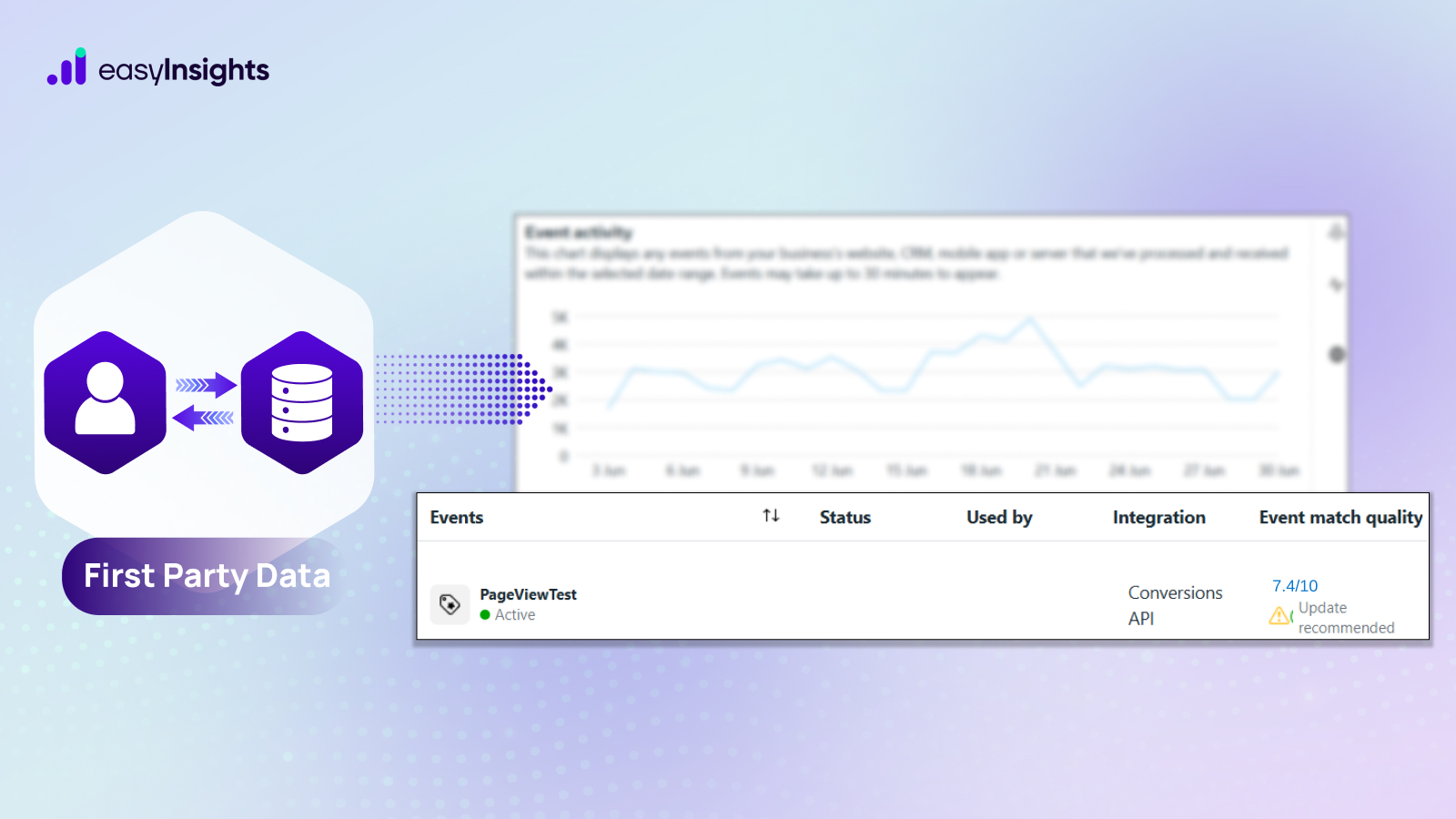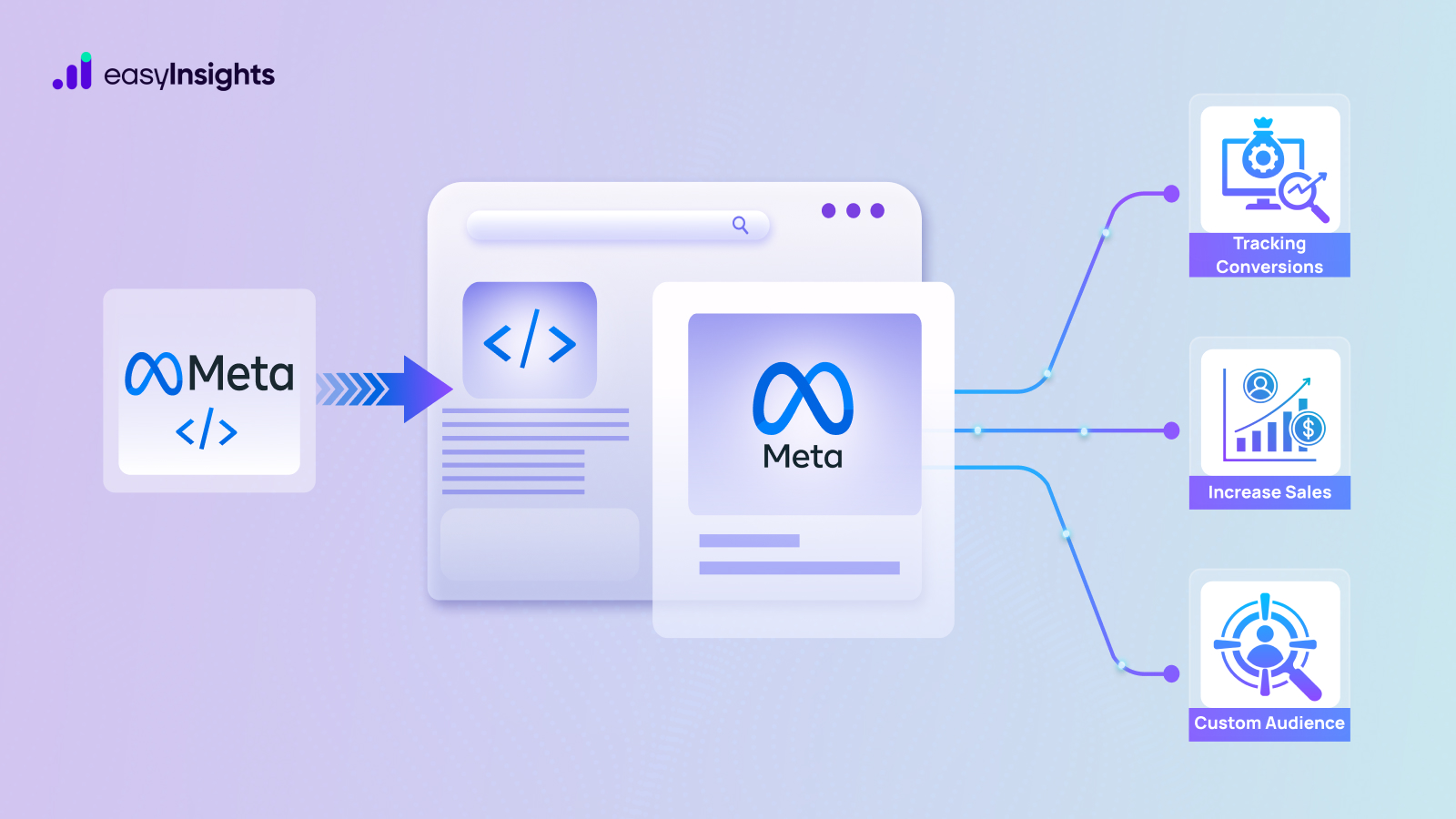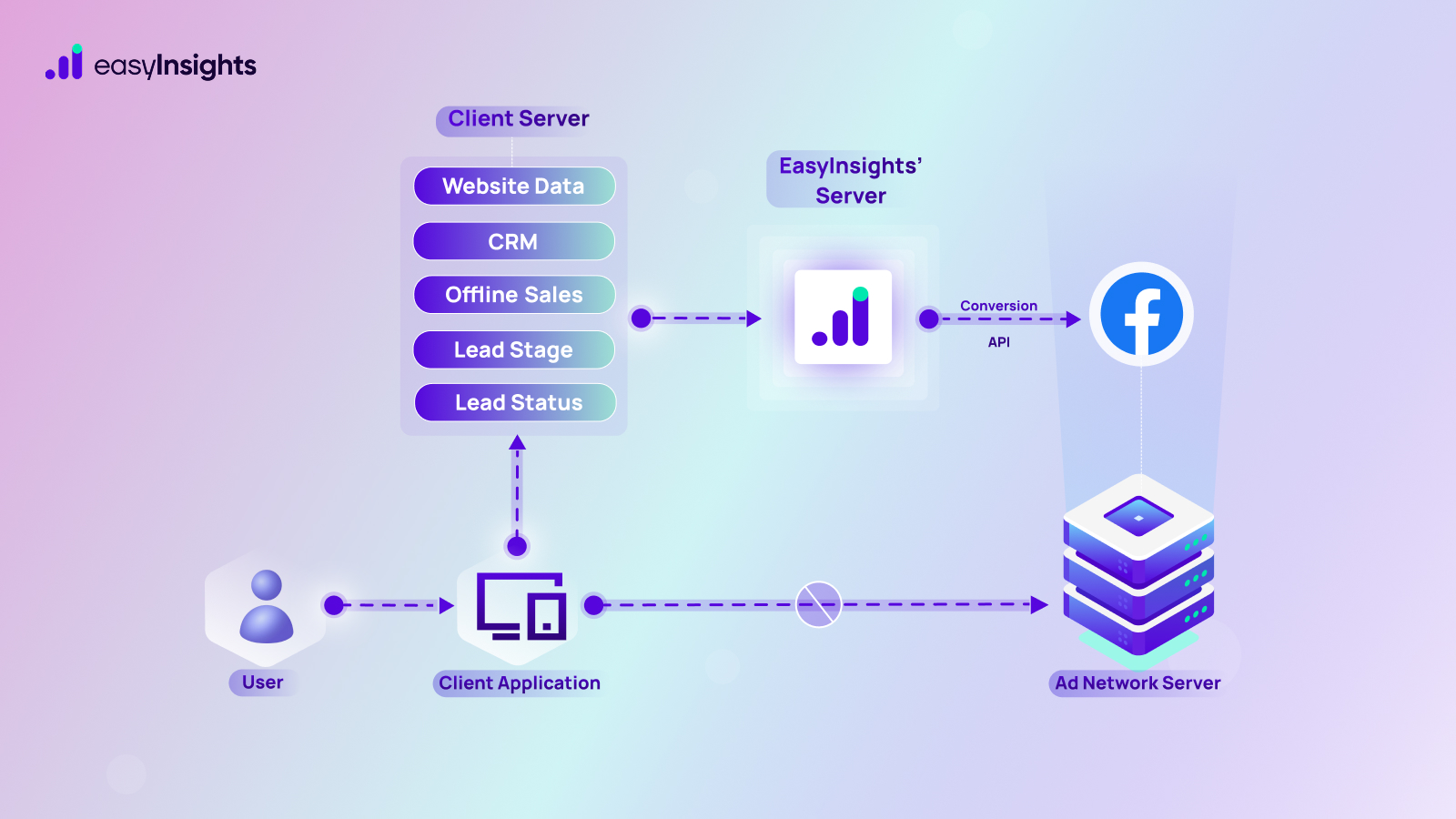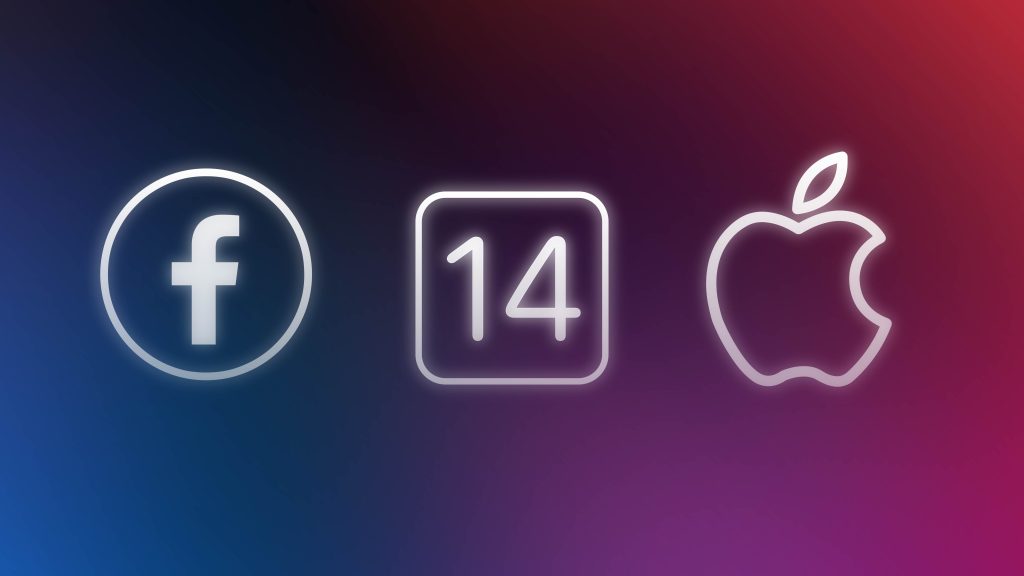
Apple and Facebook are fighting again, and this fight might just end up changing the entire landscape of advertising on Facebook, Instagram, and its entire Audience Network.
With the introduction of the iOS 14 update, privacy and data usage take the center stage in Apple devices. The new update will make it difficult for apps to collect user data and target users with hyper-personalized ads which will directly impact advertisers and brands.
For Facebook, complying with Apple’s new terms of services means not being able to collect as much data as it used to before. In fact, the social media giant has stated that this move by Apple could drop Facebook’s overall revenue from Audience Networks by over 50 percent.
So, what does the iOS 14 update mean for advertisers and their Facebook ad performance? Let’s find out:
Jump ahead to:
Apple’s newly found focus on privacy with iOS 14
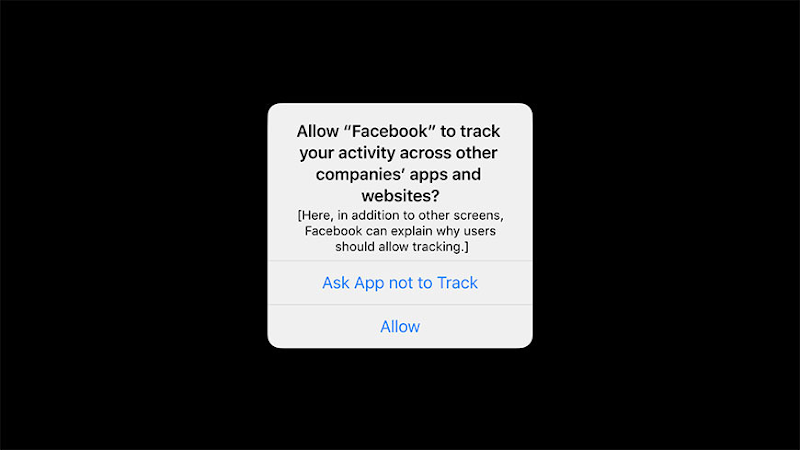
With Apple’s new App Tracking Transparency (ATT) prompt, apps will have to get permission from users in order to track them or access their phone’s advertising identifier.
But getting permission from users won’t be as easy as putting a big privacy policy or terms and conditions document in front of the users and expecting them to click on the OK button. Users will have to explicitly decide to opt-IN (and not opt-out) of all these permissions.
The problem? Facebook has always worked in an opt-out permissions manner. The social media platform does notify its users about the data that is being collected and how it is being used, but users need to update their account’s privacy settings in order to opt out of it.
The change in Apple’s privacy policies will lead to a change in the Facebook app’s permission flow. Now Facebook will have to make it clear to the users that their app wants permission to use data with two buttons: Allow Tracking, and Ask app not to track.
This permission flow will be applicable for all the iOS apps by the social media platform including Facebook, Messenger, Instagram, WhatsApp, and other apps that monetize with Facebook’s Audience Network.
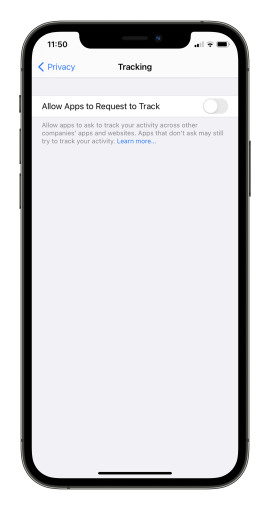
Here are some of the many examples where data tracking will need approvals from users:
- Displaying advertisements based on user collected data
- Sharing user email addresses and device location with data brokers
- Sharing email addresses, advertising IDs, and other related IDs of users with a third-party advertising network
- Putting a third party SDK in your app to improve or measure advertising efficiency
How does this move by Apple affect Facebook?
Here are the biggest changes for Facebook that you can expect with Apple iOS 14 update:
Facebook Pixel tracking: All the tracking done with Pixel will now be under-reported since users will have the option to explicitly opt out of it. This can include leads, purchases, custom conversions, and add to cart.
Lowered optimization and personalization of ads: Since Pixel can no longer learn how users are interacting with ads, it won’t be able to optimize those ads either.
Retargeting: Any user who visits your company’s website from an iOS 14 device will not be able to see retargeted ads (Though, the details for this are still not very clear)
Creating a lookalike audience: With no data about which users visited your website through their iOS 14 devices, creating lookalike audiences will also become a challenge
App installs: It will no longer be possible for Facebook to optimize App installs or other app-related conversions for iOS 14 devices
The active changes to Apple’s IDFA
Identifier for Advertisers or IDFA is a unique identifier for mobile devices which is mainly used to effectively target users with ads. Currently, over 70 percent of iOS users directly share their IDFA with app publishers. Now, with the implementation of iOS 14, it is expected that this number will drop to 10 to 15 percent as app publishers will have to explicitly ask users for OPT IN instead of OPT OUT.
The changes to Apple’s IDFA are not as unexpected if we consider Apple’s increasing focus on user privacy. While Limited Ad Tracking (LAT) in iOS devices has been around for years, it was just buried under the Settings. Now, Apple is putting privacy at the front and center.
It is expected that IDFA change will come into place with the release of iOS 14 in early 2021.
In response to Apple’s privacy policy and IDFA changes, Facebook issued a statement clarifying that the company will not collect IDFA data from its own apps on any iOS 14 devices.

The social media giant also stated that this move by Apple will severely impact its Audience Network and affect advertisers as well. According to the company, its ad revenue could drop by over 50 percent. As a result, Facebook is now considering to completely eliminate this service for all iOS 14 users.
Facebook also published full-page newspaper ads stating that this new update by Apple would be disastrous for small business owners who would easily see a 60 percent decrease in their revenue generated through Facebook advertising
How should advertisers prepare for iOS 14 update
Know your limits
While you can use your existing ad accounts to advertise on iOS 14 devices, there will be a few limitations that you need to keep in mind.
1- Ad Creation Limits
If you are planning to publish ads for conversion events that happen on your app, then are a few things you should take note of:
- You can use one ad account for multiple apps, but you cannot advertise the same app through multiple ad accounts
- Every app will be limited to 9 campaigns for iOS 14 devices at once.
- Every campaign will be limited to over five ad sets of the same type of optimization. It’s not possible to customize optimization choices across the ad sets for the same campaign. There will also be a 72-hour reset period if you want to change or delete the nine campaigns allowed for iOS 1 them to not count against the total limit
- The only buying option available for ads to be published on iOS 14 devices is an auction. (Frequency and reach will not be available)
- Once the ad campaign is published, you can’t deactivate it for a while only to turn it back on again. You can either turn it off or delete the campaign completely
If you are planning to publish ads for conversions events that happen on your website, here are a few things you should keep in mind:
- Facebook Pixel can only optimize for at most eight conversion events for every website domain. Though you can select which campaigns you want to optimize first with Events Manager
2- Reporting limitations
With problems in tracking, you will also notice reporting limitations with Facebook ads for app installs and other web conversion events.
Here are some of the many reporting limitations that you might come across with ads reporting and Ads Insights API
- Delayed reports: Real-time reporting will no longer be supported and ad data can be delayed by up to three days. While app installs campaign events will be reported based on the time that they are reported to Facebook, web conversion events will be reported based on the conversion time.
- Overall estimated results: If you are running iOS 14 app install campaigns, then the final reports will be aggregated at a campaign level.
- No breakdowns in reporting: For web as well as app conversions, it will no longer be possible to breakdown the analytics according to user age, gender, ad placement, and targeted location
- Ad attribution settings: Instead of being available at the account level, the ad attribution settings will now be accessible at the ad set level, when you are creating a new campaign
3- Targeting limits
With more people opting out of user tracking on iOS 14 devices, the size of your target audience will also eventually decrease.
4- Dynamic ads limits
If you are planning to publish dynamic ads for your business app then it’s important to note that some of the iOS 14 devices will lead the users to a mobile website URL instead of the app or the app store. In order to direct all of the iOS 14 devices to the right app destination, you will have to optimize your ad campaigns for link clinks.
If you are planning to publish dynamic ads for your business website, then:
- Create your catalogue using one pixel only. Also, note that the Facebook Pixel can only optimize and report eight conversion events for each domain at the most
- In case there are multiple domains in your catalogue, then you will be required to verify all the website domains and ensure no product URLs are being redirected to another domain
Event management
With the introduction of iOS 14, Facebook will introduce Aggregated Event Management through Event Manager.
- Facebook will optimize and report eightad sets for an event at the most. In case there are more than 8, Facebook will automatically prioritize eight and pause the others
- Only eight conversion events for every domain.
- It’s possible to configure and decide on the top eight events that should be tracked by Facebook’s Event Manager.
Actions you should take right now for Event Management:
- Verify domain in Business Manager: Verifying your domain through the process mentioned by Facebook will help ensure that there aren’t any kind of disruptions in your conversion ads when iOS 14 is introduced.
- Prioritize and select your top eight conversion events for every domain: If you already have more than 8 conversion events for every domain, then it’s time you create an action plan on how you want to implement the campaigns within the limit.
Delivery and optimization
For delivery and value optimization, here are the main things you should keep in mind:
- Value Optimization (VO) will move from Ads Manager to Events Managers. You will have to separately enable value sets in it
- In case you have already used VO in the past, value sets will get activated by default and assigned according to the historical data
- In case you have never used VO or have used it very rarely in the past, you will have to configure value sets manually
- To maximize performance, events that have value sets should be prioritized over those that don’t
Actions to take right now for delivery and optimization
- No action required if you are already using VO
- In case you do want to use VO in the future, you should take a look at this to see if you are eligible or not
Dynamic ads
Facebook expects minimal changes to dynamic ads, at least for retargeting. But advertisers should expect some decrease in their overall personal and audience size.
Actions that you can take right now:
- Verify all the product URL domains in your catalogue. Make sure none of URLs are redirecting to websites that haven’t been verified
- Create an action plan to use only one pixel for every catalogue in order to optimize and prioritize conversion events
Ad performance measurement
- 7-day view through, 28-day view through, and 28-day click-through reporting with attribution windows will no longer be supported. Though the historical data will be accessible through Ads Insights API
- Statistical modeling will be used for attribution and other metrics due to the lesser data availability of iOS 14 users.
- Attribution windows will only be able to provide partial metrics reporting as they will not include all the events from iOS 14 users
- Action and delivery breakdowns will no longer be supported for any offsite conversion events
- All the offsite conversion events will be based on the time of the conversions and not the time of ad impressions. Therefore, there may be slight fluctuations in cost metrics.
Actions you can take right now:
- Implement the comparison windows feature to see how conversions compare across all the different attribution windows
- Prevent any unexpected changes in spend as the 7-day click-through becomes the default option by updating spend rules for campaigns with a 28-day attribution window.
Final words
While we still don’t know how exactly these changes will impact Facebook ads and advertisers, we can confidently say that the iOS 14 update will tremendously change the way Apple users see and interact with ads.
For years, privacy has been a big point of debate for tech companies and it started with the implementation of GDPR. With Apple taking the first jump, other companies are expected to follow. It’s pretty clear that the emphasis on user privacy and data tracking is here to stay. And for advertisers, this means finding better ways to collect user data and target their customers with personalized ads.




